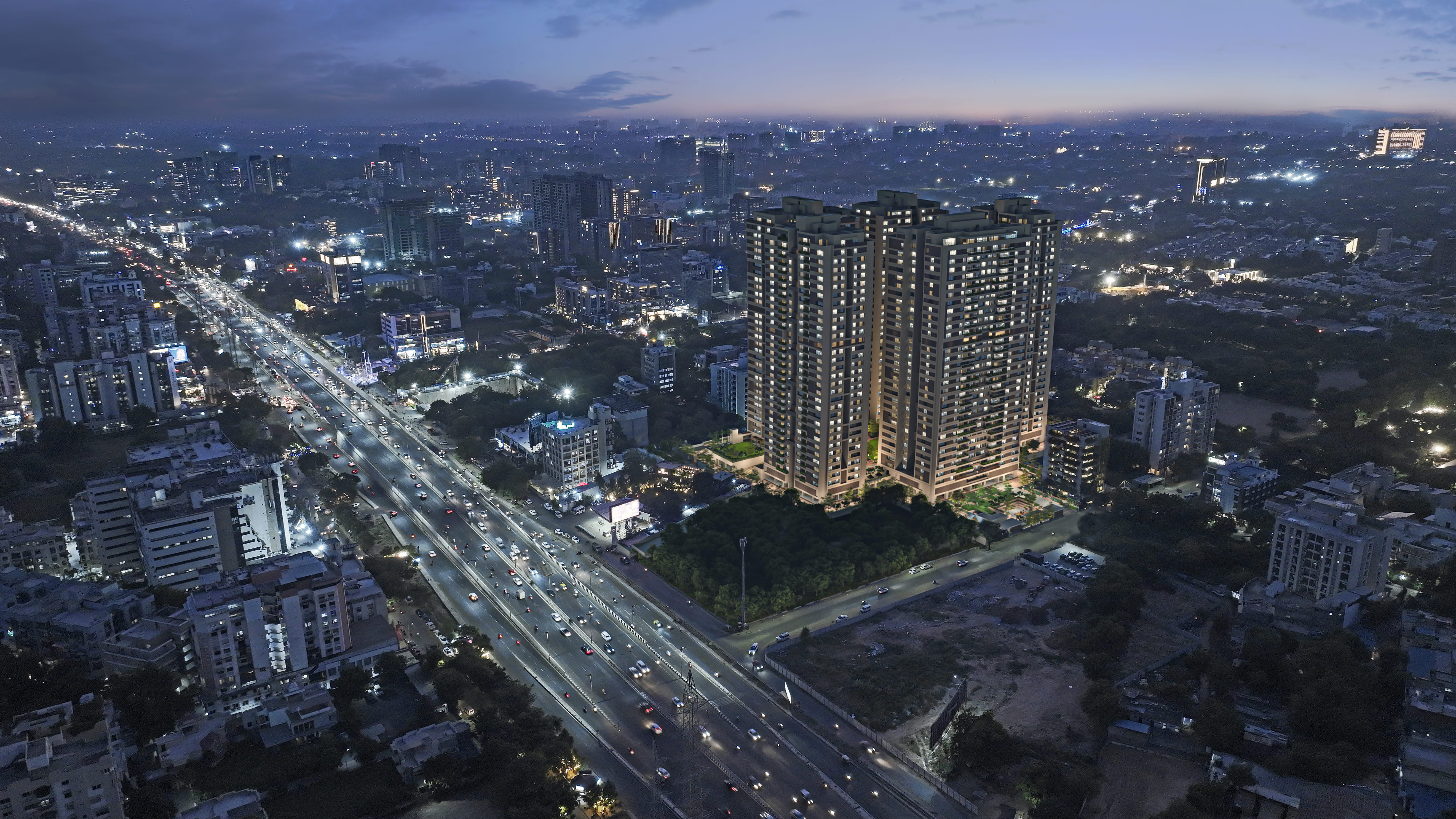REAL ESTATE ACT
2016
Real Estate (Regulations and Development) Act, 2016
Prologue
The Real Estate (Regulation and Development) Act, 2016 paves way for empowering all the stakeholders engaged in the business and consumption of Real Estate in India, be it consumers, Real Estate Developers, and Real Estate agents amongst others. All commercial and residential real estate including plots, apartments, shops, offices and other such properties are covered under the Act. While consumer interest seems to have been finally addressed by the adoption of the Act, it can’t be ignored that the Government has codified best practices for the first time in this sector and these will go a long way in defining growth from here on.
A few of the overarching themes in the Act are as follows –
- Regulatory oversight on real estate developers and real estate agents
- Purchaser’s rights and duties
- Real estate developers’ function, duties and obligations
- Real estate agent’s duties and functions
Dispute resolution
The Real Estate (Regulations and Development) Act, 2016 and the rules formulated by the State Governments have set up a much-needed framework that will not only empower the consumer but also make the industry more competitive and organized.
Below is a list of FAQs pertaining to the Act.
Definitions often used terms in the following FAQs –
Consumer/Buyer: A person who has booked/agreed to purchase for a consideration plot(s), apartment(s), or building(s) from a Real Estate Developer.
Real Estate Developer/Promoter: A person who develops and/or constructs building(s) or a township consisting of residential apartments and/or commercial complexes on an independently or a jointly-owned land, which are partially or completely sold to the consumers. However, a consumer does not include a consumer who has bought goods or who has availed services for commercial purposes.
Project: A Real Estate project undertaken by a real estate developer comprising of apartment(s), unit(s), building(s), wing(s), plot(s) for residential or commercial purposes or both with certain amenities and facilities for the use of the purchaser as specified in their agreement for sale.
Real Estate Agent: A Real Estate agent commonly referred to as brokers or channel partners or property dealers, is a person who is registered with the RERA authorities and the real estate developer. Such Real Estate Agent facilitates the sale or purchase or acts on behalf of any person to facilitate the sale or purchase of any plot, apartment, unit or building, as the case may be, in a registered real estate project and receives remuneration/fees/ any other charges as commission/brokerage from the real estate developer.
Unit: A single apartment, shop or an office which is a part of a building or township being developed.
Carpet Area: Means the net usable floor area of an apartment, excluding the area covered by the external walls, areas under service shafts, exclusive balcony or veranda area and exclusive open terrace area, but includes the area covered by the internal partition walls of the apartment.
-
What is Real Estate (Regulation and Development) Act, 2016?
The Real Estate (Regulation and Development) Act, 2016 (“the Act”) is an umbrella legislation designed to provide a framework for both Central and State Government. The Act is a Government of India initiative to bring about the much needed transparency and order in real estate related transactions by creating a systematic and a uniform regulatory environment, thereby protecting consumer interest and making real estate developers accountable for timely completion of projects. The Act paves the way for setting up of Real Estate Regulatory Authority (“Authority”) at every State for regulation and promotion of real estate sector while promoting transparency and equity in real estate transactions.
-
What was the need for setting up Authority?
The real estate sector has grown in the recent years but has largely been unregulated from the perspective of consumer protection. Though, consumer protection laws are available, the recourse available therein is only curative, but not preventive. This has affected the overall potential growth of the sector due to the absence of professionalism and standardization.
The functions of the Authority include promotion of real estate sector, advocacy by creating awareness, imparting training about laws relating to the real estate sector and policies, regulating and registering real estate developers and agents, maintaining website, ensuring compliance of obligations cast upon real estate developers and other such functions provided under the Act and State Rules.
The Act brings stakeholders like consumers, real estate developers and the real estate agents- under the purview of the Authority in order to ensure compliance of the Act by the stakeholders. The Act empowers the States to introduce its own rules to accommodate the need of its own unique geographies without diluting the provisions of the Act. The Act also provides for appropriate Government of two or more States or Union Territories (UTs) to establish single Authority.
-
Is the Act applicable to both residential and commercial real estate?
Yes, The Act is applicable to both residential and commercial real estate.
-
Is the Act covering ongoing / incomplete real estate projects as well?
There is no distinction between an ongoing/incomplete project and both types of projects are covered under the ambit of the Act. Further, any new projects to be launched by the real estate developers are also covered under the ambit of the Act.
-
Which projects are exempted from the ambit of the Act?
As per the relevant provisions of the Act, the following projects do not require registration under the Act:
Where area of the land proposed to be developed does not exceed five hundred square meters, or the number of apartments proposed to be developed does not exceed eight inclusive of all phases:
Provided that, the appropriate Government considers it necessary, it may, reduce the threshold below five hundred square meters or eight apartments, as the case may be, inclusive of all phases, for exemption from registration under the Act. Where the real estate developer has received completion certificate for a real estate project prior to commencement of the Act.
For the purpose of renovation or repair or re-development which does not involve marketing, advertising selling or new allotment of any apartment, plot or building, as the case may be, under the real estate project.
-
What are the actions to be taken by the Authority after an application has been submitted for project registration?
The Authority set up by every State, is required to either grant registration or reject the application within 30 days of its submission. If the application is not in conformation with the guidelines and Authority finds it worth rejecting, it is mandatory that the applicant/real estate developer be heard in the matter before rejection.
-
What is the validity period for a particular project registration?
The registration will be valid for a period specified by the real estate developer in the application form submitted to the Authority. Hence, the real estate developer is accountable to the adhere to the timelines otherwise he risks suffering losses/ penalties.
-
Is there a common platform to access the details of the registered real estate developers and their projects?
Each State has its own platform which provides access to the details of registered real estate projects, the real estate developers and the real estate agents. For example, a consumer can view the projects registered in Maharashtra on www.maharera.mahaonline.gov.in.
-
What is the ‘Agreement for Sale’ and is it binding on the ‘real estate developer’ and the ‘buyer/consumer’?
The agreement entered between the developer and the consumer/buyer for the sale of the apartment/flat/unit in the developer’s project is called the Agreement for Sale. Some of the States have specified through its rules the ‘Agreement for Sale’ to be entered between the real estate developer and the buyer/consumer.
The Agreement for Sale is binding on the parties, however, internal flexibility may be provided in the Agreement for Sale, for determination / insertion of other provisions as may be required.
-
When is the Agreement for Sale required to be registered under the Act?
Agreement for Sale between the real estate developer and the buyer/consumer is to be registered under the Act before the buyer/consumer makes payment of a sum more than 10% of the consideration.
-
Are there norms on advertisements or promotions?
Yes, there are norms provided under the Act. Every real estate developer is responsible for the veracity of all information contained in the advertisement and the prospectus. In case any loss is sustained by the buyer/consumer due to false information contained therein, the promoter is liable to make good the loss sustained due to the same. Further, all advertisements / prospectus issued or published by the real estate developer shall prominently mention the website address of the Authority, wherein all the details of the registered project have been entered and include the registration number obtained from the Authority and such other matters incidental thereto.
Frequently Asked Questions
A. Real Estate Regulation and Development Legislation
-
What are the obligations, functions and responsibilities of a real estate developer as stated in the Act?
The following are few of the obligations, functions and responsibilities of a real estate developer:
Register its project with the concerned Authority and obtain a valid registration number for each of its projects.
Real estate developers are not permitted to market, advertise, offer, invite, book or sell any plot, apartment or building in any real estate project in any planning area without registering the real estate project with the concerned Authority.
The real estate developer is required to submit all documents related to the project, which is considered necessary by the Authority. Agreement between the developer and the buyer/consumer to be registered under the Registration Act, 1908 before exceeding 10% of the sale consideration.
The real estate developer must deposit 70% of the amount or such other percent as provided under the Act or the rules, received from the consumers in a separate account from time to time and the real estate developer will be able to withdraw the amounts in accordance to the procedure provided under the Act.
Adhere to the project plan at all times. To repair structural defects if any, as defined and provided under the Act.
Enable the formation of an association or society or co-operative society, as the case may be, of the buyers/consumers or a federation of the same under the applicable laws.
-
The Act has mandated real estate developers to specify ‘carpet area’ rather than ‘super built-up area’. How will that help?
To ensure that the consumer knows what he is paying for, it has been made mandatory for the real estate developer to specify the carpet area. Carpet area refers to the net usable floor area of an apartment, excluding the area covered by the external walls, areas under service shafts, exclusive balcony or veranda area and exclusive open terrace area, but includes the area covered by the internal partition walls of the apartment. The Act thereby enacts a straightforward definition to be adopted across the country.
-
Can a real estate developer modify/amend plans after the same are approved by the competent authority?
The Act provides that modifications/amendments in the plans or specifications can be made in case of minor additions or alterations–
However, in case of major modifications / alterations, the real estate developer can modify the sanctioned plans or project specifications only in terms of the provisions of the Act. Also, irrespective of the number of apartments held by a buyer/consumer, he/she shall only be entitled to one vote.
-
Does a real estate developer need to register the complete project even if he is launching a part of the project on a part of the entire land?
launching a part of the project on a part of the entire land? The real estate developer is free to decide the manner in which he wishes to develop the project land and the same may be done in various phases. The real estate developer is required to provide/submit all the requisite details of the phase it proposes to register with the Authority, post which the real estate developer will either grant registration or reject the application.
-
What are the penalties that a real estate developer would face if he fails to adhere to the registration?
If the real estate developer violates the registration procedures prescribed by the Act, the real estate developer will be liable to pay a penalty as prescribed under the Act. However, in case the real estate developer consistently defaults or does not comply with the directions / orders of the Authority with regards to registration of the project with the Authority, the real estate developer shall be liable to additional fine or imprisonment or both, as may be prescribed under the Act.
-
Can a real estate developer exit the project midway by transferring to a third party?
The real estate developer is allowed to transfer the project to a third party provided that the real estate developer has obtained the consent of the buyers/consumers as well as the Authority in accordance to the provisions as prescribed in the Act.
B. Real Estate Developer
-
On what grounds can the registration of real estate agent be revoked by the Authority?
The Authority may revoke the registration of the real estate agent in case of breach of any of the conditions laid down by the Act is committed by a real estate agent or the Authority is satisfied that the registration has been secured by the real estate agent through misrepresentation or fraud, breach of any terms and conditions of the Act, and any sort of unfair practice can cause the registration of the real estate agent to be revoked; but not before the real estate agent is given a chance to be heard. The Act makes it tougher for the real estate agents to conduct business in an unprofessional manner and in a way prompts them to adopt ethical means of dealing with consumers.
C. Real Estate Agents
-
What are the novel measures taken to secure consumer interest and empower him?
The consumer is entitled to receive information about the sanctioned plan, layout plan as approved by the competent authority, stage-wise time schedule of the project completion and the services promised by the real estate developer. After receiving the physical possession of the unit, the consumer has the right to obtain the necessary documents.
The consumers can claim possession of the unit and the association of consumers can collectively claim possession of the common areas as declared by the real estate developer as per the provisions prescribed under the Act.
If the real estate developer fails to meet the timeline or does not deliver what was promised, the consumer has the right to claim refund of amount paid along with prescribed interest for the same. Also, consumers/buyers will have to be updated about project progress, sales and construction status by the real estate developer.
-
What are the novel measures taken to secure consumer interest and empower him?
The consumer is entitled to receive information about the sanctioned plan, layout plan as approved by the competent authority, stage-wise time schedule of the project completion and the services promised by the real estate developer. After receiving the physical possession of the unit, the consumer has the right to obtain the necessary documents.
The consumers can claim possession of the unit and the association of consumers can collectively claim possession of the common areas as declared by the real estate developer as per the provisions prescribed under the Act.
If the real estate developer fails to meet the timeline or does not deliver what was promised, the consumer has the right to claim refund of amount paid along with prescribed interest for the same. Also, consumers/buyers will have to be updated about project progress, sales and construction status by the real estate developer.
-
What are the novel measures taken to secure consumer interest and empower him?
The consumer is entitled to receive information about the sanctioned plan, layout plan as approved by the competent authority, stage-wise time schedule of the project completion and the services promised by the real estate developer. After receiving the physical possession of the unit, the consumer has the right to obtain the necessary documents.
The consumers can claim possession of the unit and the association of consumers can collectively claim possession of the common areas as declared by the real estate developer as per the provisions prescribed under the Act.
If the real estate developer fails to meet the timeline or does not deliver what was promised, the consumer has the right to claim refund of amount paid along with prescribed interest for the same. Also, consumers/buyers will have to be updated about project progress, sales and construction status by the real estate developer.
D. Consumers
Disclaimer
This Frequently Asked Questions (FAQs)/content material has been published for general information purpose for property buyers only. You are advised to take specific legal advice on the matter in which the Central Act and State Rules apply to you. The terms and conditions for the purchase of the apartment/unit/plot shall be as specified in the final agreement for sale executed between the buyer/consumer and the real estate developer.
The FAQs pertaining to the Central Act and the rules, if any, discussed/provided herein are subject to amendments by the appropriate Government from time to time and interpretation by Courts and concerned authorities. We including our subsidiaries/affiliates/employees do not claim any expertise in advice on the same. We including our subsidiaries/affiliates/employees shall not be responsible for any reliance placed on the materials contained herein.


 4 & 5 BHLK Prestigious Living
4 & 5 BHLK Prestigious Living Opp. The Grand Bhagwati (TGB), Pakwan Circle, S.G Highway, Ahmedabad, Gujarat-380054
Opp. The Grand Bhagwati (TGB), Pakwan Circle, S.G Highway, Ahmedabad, Gujarat-380054




